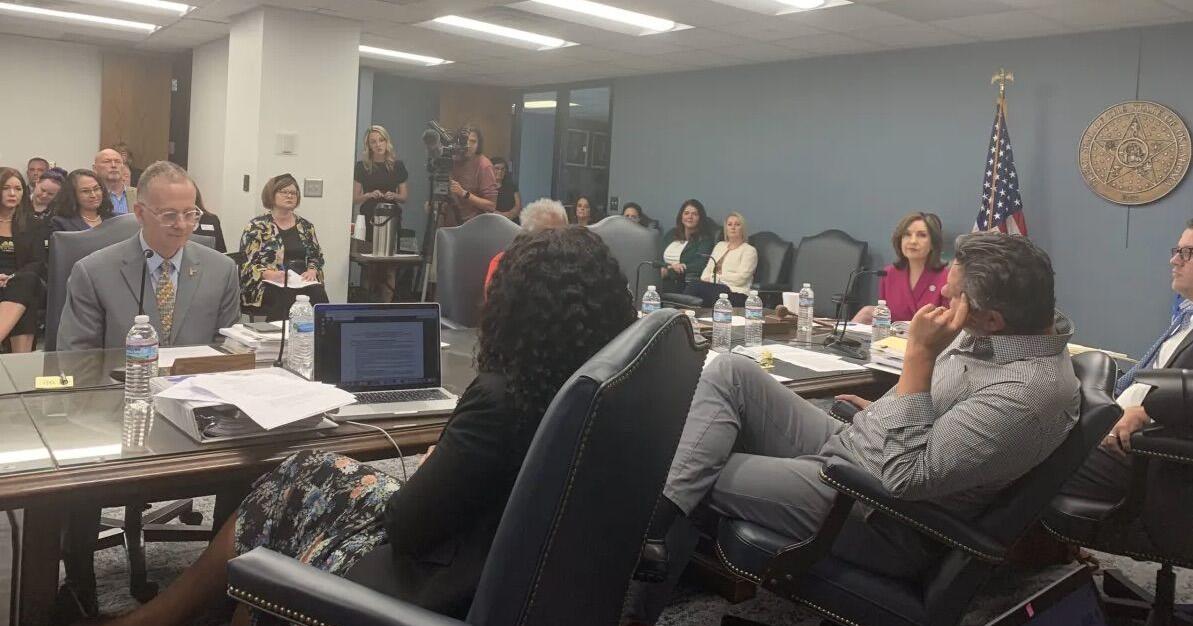
The state board of education on Thursday rejected by a majority vote to reconsider the sanctions it imposed on two districts last month under a state law banning certain conversations about race.
The board’s refusal follows a series of emotional pleas from community and district leaders in Tulsa and Mustang, revealing the toll the board’s actions have taken on their schools. Both constituencies were cautioned for violating the provisions of House Bill 1775.
“People move to Mustang for school. My family moved to Mustang for school in 1991. This hurts our community,” said Mustang Mayor Brian Glider. rice field. “If this board was not willing to listen to the facts and not allow Mustang to participate in the process, we would have been punished.”
Mustang High School Principal Kathy Knowles said: Mustang Public Schools lose accreditation…that kind of fear is paralyzing.
Board member Karisha Williams-Bradley’s motion on Thursday to discuss reconsidering the Mustang’s certification was not approved by a majority of the board. State Superintendent Joy Hoffmeister voted in favor but Board members Trent Smith, Sarah Lepac, and Brian Bobek voted against it. Board members Estella Hernandez and Jennifer Monise were absent.
Bradley filed the same motion against Tulsa Public Schools, which was equally unsuccessful.
In July, the board downgraded both districts’ accreditation in a move seen as largely political.The Oklahoman said the 2021 legislation was a way to bring people together rather than divide them. Advocating Gov. Kevin Stitt recently said, “People are blowing this out of proportion,” referring to community reactions to the law’s implementation.
The board, the appointees of all stitts except Hoffmeister, opposed the State Department of Education’s recommendation of “deficiency recognition” and, as Hernandez articulated, “sent a message” to the school district. Downgraded to “Warning Certified”. Accreditation with a warning is reserved for issues that seriously undermine the quality of the school’s educational program.
House Bill 1775 restricts teachers and school personnel from teaching eight specific concepts. This includes the belief that one race or gender is superior to another, that some races are inherently racist, and that all people are racist for their race. should feel uncomfortable, guilty, or distressed. Or sex.
In Tulsa, under House Bill 1775, a teacher complained that staff training on implicit bias, which took place in August 2021, “contains statements that specifically shame white people.” Members of the state board did not listen to the training audio before making decisions. Tulsa district leaders say the training does not violate the letter or spirit of the law and meets state requirements for professional development.
Mustang’s complaint stemmed from a voluntary student activity called “Cross the Line,” which aimed to build empathy among students and reduce bullying. District leaders say they resolved the issue within days.
The Department of Education is investigating additional complaints under the law, according to Department of Education spokeswoman Leslie Berger. Districts will not be identified until the investigation is complete. It was not discussed at Thursday’s board meeting.
A high school English teacher at Norman Public Schools resigned earlier this week over a dispute with district policy regarding classroom books related to House Bill 1775. According to news reports, the Brooklyn Public Library’s book banning program.
A spokesperson for the school district said teachers “made personal and political statements during class and used the classroom to set up political displays to voice those opinions.” The teacher was temporarily removed from the classroom, but not dismissed. Boymer chose to resign.
On behalf of a group of students and educators, the American Civil Liberties Union filed a lawsuit in October over House Bill 1775, seeking a preliminary injunction from a judge. Recently, an ACLU attorney provided additional evidence based on her July board decision regarding Tulsa’s accreditation.
They argue that the law is unconstitutionally vague and broad, leading to censorship and having a chilling effect on the freedom of speech of both teachers and students.
.

